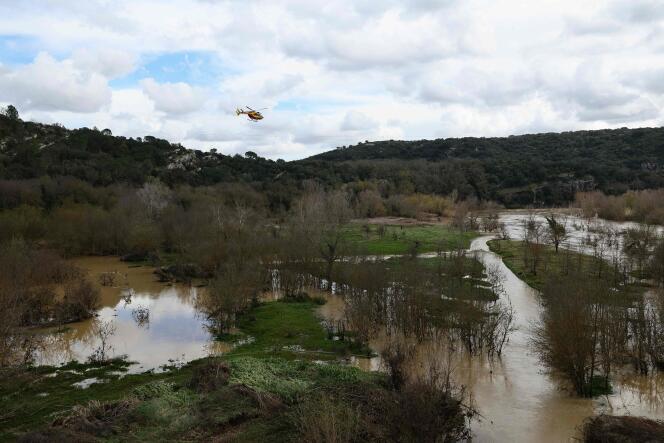


These are deluges so sudden and brutal that they can lead to scenes of devastation and tragic outcomes. Six people died in Gard and Ardèche over the weekend following violent storms that swelled rivers and caused serious flooding. Since early February, France has been hit by three of these phenomena known as 'Mediterranean episodes,' which are rare in winter.
"All the ingredients were there as the French Mediterranean regions were hit by a succession of disturbances," explains Aurélien Ribes, a researcher at Météo-France's Centre national de recherches météorologiques (CNRM).
On March 9 and 10, storm Monica brought warm, moisture-laden air from the Mediterranean Sea to the south of France. When it hit the mountains, the air rose and cooled, leading to heavy precipitation. The storm systems were all the more intense as they stagnated in the same areas, trapped by the mountains. Cumulative rainfall, for example, reached 110 to 160 millimeters in twenty-four hours on Mont Aigoual and the Causses, 100 to 140 millimeters in the Nîmes hinterland, and between 170 and 180 millimeters towards Villefort (Lozère).
"The soils, already saturated with water following the winter's many disturbances, generated runoff that turned into floods," adds Cindy Lebeaupin Brossier, a CNRS researcher at CNRM, who took part in the HyMeX research program conducted between 2010 and 2020 to better understand Mediterranean weather events.
These heavy rainfalls, which occur on average three to six times a year in France – with considerable variability – most often occur in the fall, when there is a sharp contrast between Mediterranean temperatures and those at higher altitudes. In reality, however, they can occur at any time of year. "It's rarer, but not unheard of, to observe such events in March," says Cindy Lebeaupin Brossier. Precedents have occurred in the same month in 2022, 2018, 2013, and 2011, in the Hérault, the Cévennes, and the southern Pyrénées-Orientales areas.
Have high temperatures in the Mediterranean and, above all, the Atlantic Ocean, or the very warm winter recorded in France, played a role in the occurrence of such phenomena in recent weeks? "Mediterranean warming is not a trigger, but an amplifier," replies Cindy Lebeaupin Brossier. There is no indication of any change in the seasonality of these flash floods.
The number of Mediterranean weather events is not increasing as a result of climate change. But the strongest events are becoming more intense and more frequent. "Between 1961 and 2022, we observed a doubling in the frequency of the strongest Mediterranean weather events, those exceeding 200 millimeters of rain in a single day, and an increase in heavy precipitation," explains Aurélien Ribes.
You have 27.31% of this article left to read. The rest is for subscribers only.
